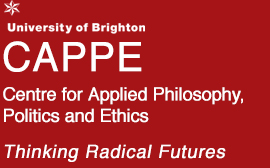24th Jan 2012 6:30pm
M57, Grand Parade, University of Brighton

6.30 pm, Tuesday 24th of January
M 57, Grand Parade
Confronted with the agitation in what is incorrectly designated as the Arab world, and with the revolutionary events in Tunisia and Egypt, many radical thinkers who long defended revolutionary politics, against those who scorned them as old-fashioned and dangerous fanatics, find confirmation of their speculative conception of revolutionary events in these crises. In this paper, I begin from the obvious paradox that makes this attitude untenable: thought must learn from events rather than assume an overarching truth which events merely confirm. This does not mean that there is no need to say anything about radical events. On the contrary I draw on Foucault to define what might be the right attitude to the relation between theory and events in general. The fact that Foucault spent two years, from 1966 to 1968 in Tunisia, was not incidental to his elaboration of an original attitude to radical events. He always said that his May 68 occurred in March 68 in Tunisia. This paper returns, with the Foucault of 1968, to the Tunisia of 2011.
Before coming to Essex, Patrice Maniglier taught philosophy at the University of Lille and at the Ecole Normale Supérieure, as well as the theory of arts at the Ecole des Beaux Arts. He is the author of various books and articles on the history of structuralism, the philosophy of social sciences (esp. linguistics, anthropology and psychoanalysis), 20th Century French Philosophy (Sartre, Merleau-Ponty, Foucault, Derrida, Deleuze, Badiou), as well as on political philosophy and the theory of arts (ranging from conceptual art to the movie The Matrix). He is a member of the editorial committee of Les Temps Modernes and a program director at the Collège International de Philosophie in Paris.
Organised by CAPPE and the Critical Studies Research Group, Faculty of Arts, University of Brighton